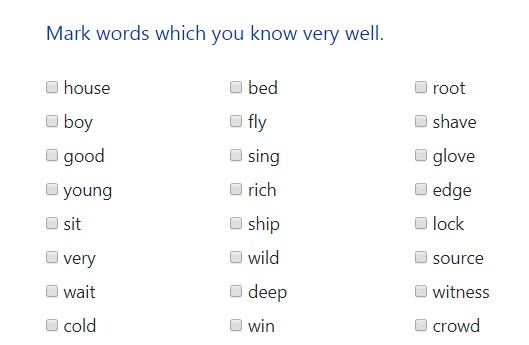Lesson 7
How to Handle Mistakes
On Tuesday, I go to school again. One student asks our teacher an interesting question. She says, “I would like to practise speaking with people around me but I am afraid of making mistakes. I don’t want to look stupid. Can you help me?”
Our teacher says, “Making mistakes is a very interesting topic. There are a lot of opinions on it. I want to show you what I believe is the best approach. I have a lot of experience with this because I also learnt new languages. I still continue doing it. For example, now I am learning Spanish.
When I speak Spanish, I don’t care if I make mistakes or not. The reason why I don’t care about mistakes is simple. When I learnt my native language, I didn’t care about making mistakes, either. So why should I care now? My main goal when I use any language is to express my ideas. That is all.
I know that when I read a lot, speak and do shadowing, my Spanish will be better and better.
I know that this can sound incredibly simple but it is my opinion. This is what I have found after many years of both teaching and learning languages. It works very well for me and many of my students. When I speak, I only concentrate on speaking.
At the moment I know 1500 words in Spanish. It is the level of a two-year-old child.
Two-year-old children make a lot of mistakes when they speak, but they don’t care about their mistakes. They continue using their native language and when they are three years old, they make very few mistakes and when they are four years old, they already speak very well with hardly making any mistakes. You should have the same attitude.
Now most of you know about 2000 words, so it is absolutely OK to make mistakes time to time. When you continue using English, there will be fewer and fewer mistakes in your speaking.
It is not possible to get better without making mistakes. When you practise English, it is OK not to be perfect. Perfection comes with practise. Anybody who started to learn English, started from the beginning, from the same level, which is level zero.
Learning languages is like learning to play a musical instrument. It needs to be trained. When you start your training, it is not perfect at first and you make mistakes. It is normal. Take it as a necessary part of your learning process.
If you didn’t go through this period of making mistakes, you could not get to higher levels. By continuing to do what you want to learn, the mistakes are gradually being eliminated.
If you want to make fewer and fewer mistakes, do a lot of reading and shadowing. When you read, you can read aloud. It can also help you make fewer mistakes.
In real conversations, care only about exchanging ideas. Don’t care about making mistakes. When you speak, you practise changing your thoughts into words. You don’t learn grammar or words. You have other activities for that.
Don’t worry. Everybody who learns a foreign language makes mistakes from time to time, even famous people, bosses of big companies or politicians. When you listen to these people on TV, you see that they don’t care about mistakes. They care about what is important and that is expressing their ideas. You should do the same. Does it make sense?”
The girl says, “Yes, thank you.”
If you don’t want to make mistakes, do a lot of reading and shadowing.


